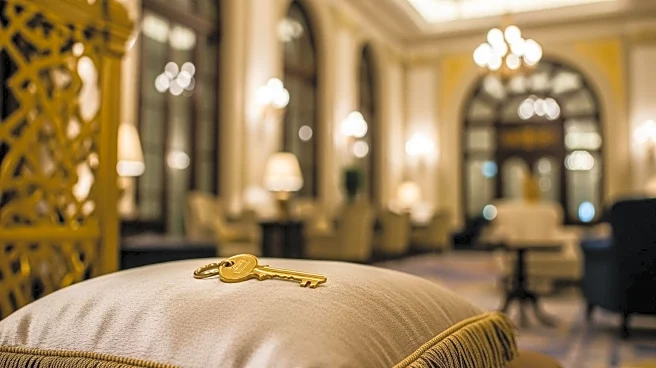What's Happening?
The Plaza Hotel in New York City, renowned for its historical significance and luxury, is facing criticism regarding its current service standards. A recent review highlighted a disappointing experience
at the hotel, which charges $2400 per night. The Plaza, once a symbol of ultimate luxury, has hosted numerous celebrities, presidents, and royalty over its century-long history. However, the review questions whether the hotel still lives up to its prestigious reputation in 2025. The critique provides an honest look into the current state of the hotel's offerings, suggesting that the legacy of luxury may not be as robust as it once was.
Why It's Important?
The Plaza Hotel's reputation as a luxury destination is significant for New York City's hospitality industry. As a landmark establishment, any decline in service quality could impact its standing among high-end travelers and affect the city's image as a luxury travel destination. The critique may prompt potential guests to reconsider their accommodation choices, potentially affecting the hotel's occupancy rates and revenue. Additionally, this situation highlights the broader challenges faced by historic luxury hotels in maintaining their standards amidst evolving guest expectations and competitive pressures from newer, modern establishments.
What's Next?
The Plaza Hotel may need to address the concerns raised in the review to preserve its reputation. This could involve reassessing its service protocols and guest experience strategies to align with contemporary luxury standards. The hotel management might also consider engaging with guests to gather feedback and implement improvements. The response from the hotel and its ability to adapt could influence its future success and standing in the luxury hospitality market.
Beyond the Headlines
This situation underscores the broader trend in the luxury hospitality industry where historical prestige must be balanced with modern expectations. The Plaza Hotel's experience may serve as a case study for other historic hotels facing similar challenges. It raises questions about how such establishments can innovate while preserving their unique heritage, and the role of guest feedback in shaping service evolution.












